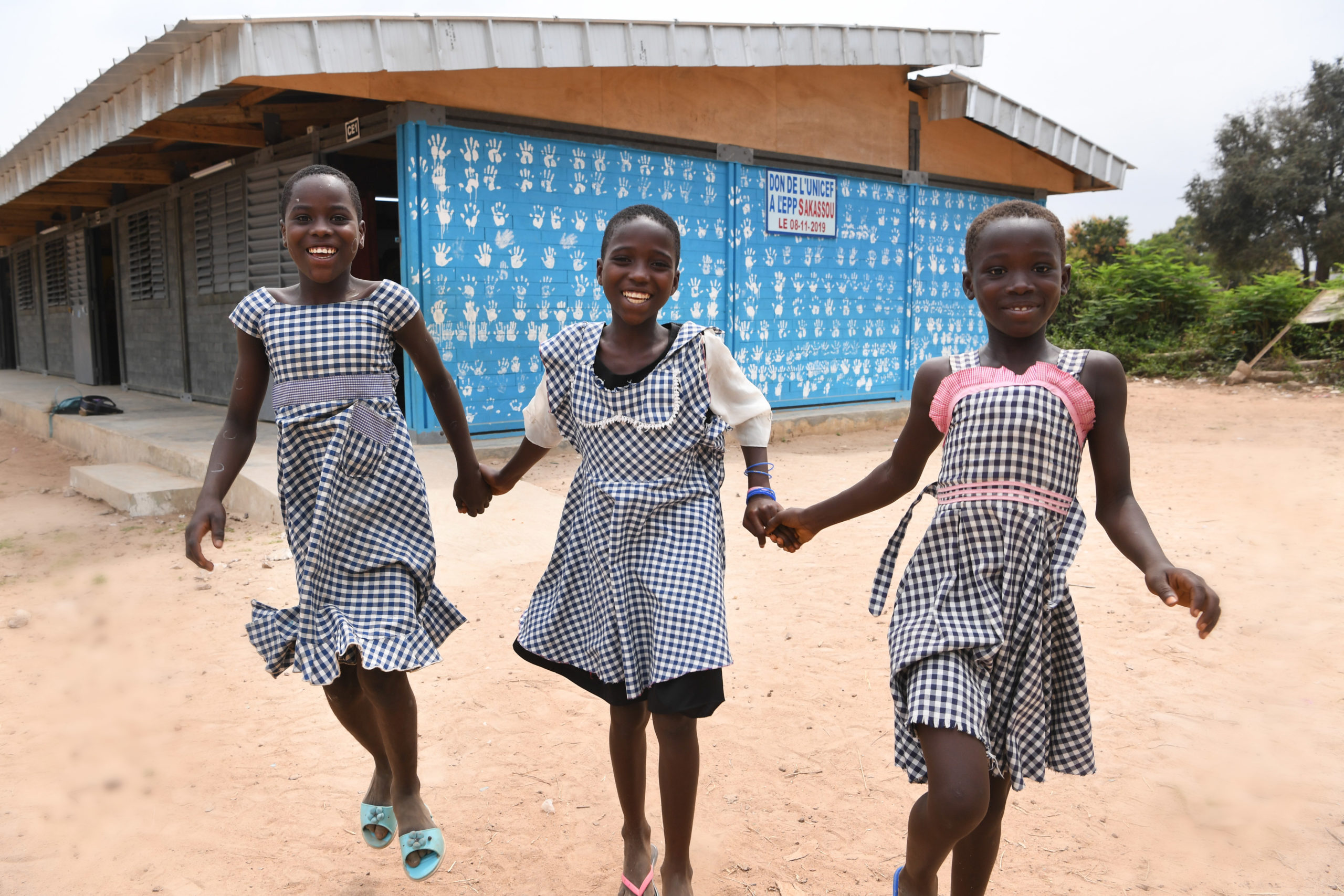
UNICEF BUSINESS BUDDIES
The Ivory coast has a huge waste problem. At the same time, 1.6 million children and young people in the West African country do not attend school. Plastic Bricks is a project that recycles plastic into building blocks for classrooms.
26 MILLION inhabitants in the Ivory coast.
13 MILLION children under the age of 18 in the Ivory coast
1.6 MILLION children and young people still do not attend school
Plastic Bricks
Ivory coast capital produces 288,000 kilos of plastic every day. Of this, only five per cent is sold for recycling, mostly by women. Unfortunately, this earns them far too little. At the same time, 1.6 million children and youth in Ivory coast do not go to school. The plastic recycling programme Plastic Bricks offers hope for the future of children, young people and women in Ivory coast .
UNICEF trains mothers and young people in the collection, safe storage and disposal of plastic waste. At our recycling factory, plastic waste is bought from women for a fair price. The factory processes the plastic waste into building blocks, which we use to build new classrooms. The construction of six classrooms allows 636 children to attend school, including 292 girls of primary school age. They now attend school in a safe and stimulating environment.

We are proud to announce that from now on we have become a Unicef Business Buddy. This way, we help to provide education to children in Ivory Coast through a special project ‘Plastic Bricks’.
By supporting the ‘Plastic Bricks’ project, we are not only supporting education in Ivory Coast, but also working towards a better environment. Capital city Abidjan produces 288,000 kilos of plastic every day. UNICEF has some of this recycled into plastic building blocks, which are used to build school classrooms. Currently, 1.6 million children in Ivory coast do not attend school.
‘The cooperation is actually quite natural,’ says Rudy Haringhuizen. ‘Together with Leo van der Maale, I visited Ivory coast in 2018 to look at the cocoa plantations of Belgian chocolate producers here. Even then, we noticed how much waste there was on the streets and how many children live on the streets. By committing, we not only support the plastic problem, but also the future of these children. Which for our cocoa industry is again very important.’
Our contribution is translated into a certificate recording our number of sponsored bricks. With 10,000 bricks, Unicef builds an entire classroom! With help from donors in the Netherlands, UNICEF has been able to achieve the following results in Ivory coast as of January 2020:
Access to education has been increased through the construction of six classrooms.
636 children are able to attend school through the construction of six classrooms.
One recycling plant built in the capital Abidjan.
130 tonnes of waste recycled with the involvement of women.

